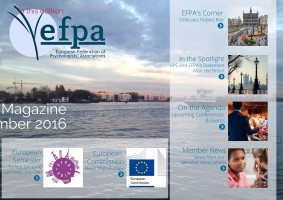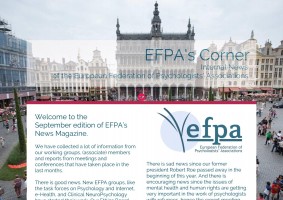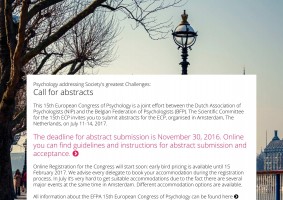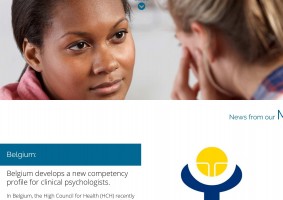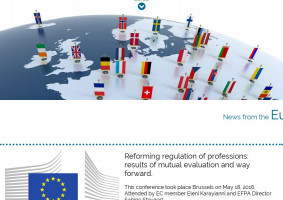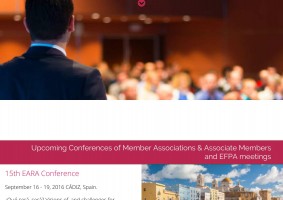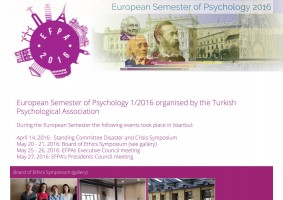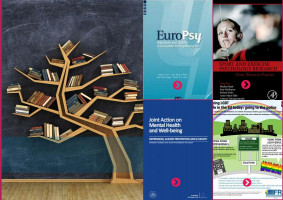Psychology addressing Society's greatest Challenges:
Call for abstracts
This 15th European Congress of Psychology is a joint effort between the Dutch Association of Psychologists (NIP) and the Belgian Federation of Psychologists (BFP). The Scientific Committee for the 15th ECP invites you to submit abstracts for the ECP, organised in Amsterdam, The Netherlands, on July 11-14, 2017.
Online Registration for the Congress will start soon: early bird pricing is available until 15 February 2017. We advise every delegate to book your accommodation during the registration process. In July it’s very hard to get suitable accommodations due to the fact there are several major events at the same time in Amsterdam. Different accommodation options are available.
All information about the EFPA 15th European Congress of Psychology can be found here
Share this Call for Abstracts within your network!
_w1380_h718_1.jpg)
Expert meeting: Human Rights for Psychologists
An expert meeting on Human Ruights and Psychology is organised by EFPA Board Human Rights and Psychology, EIUC (European Interuniversity Centre for Human Rights and Democratisation) and FRA (European Union Agency for Fundamental Rights) on October 9 -11 2016 in Venice (Italy).
Human Rights and Psychology is a two-way traffic: The Universal Declaration of Human Rights (1948) as a foundation for the promotion of well-being of humanity can be an immense inspiration for psychologists. The core principles of the Universal Declaration are human dignity, freedom and inclusion. The principles formulated in the EFPA Model Code are in line with the Universal Declaration of Human Rights and imply a professional societal responsibilit y and a strong commitment to Human Rights. Given their knowledge and experience, psychologists have a special responsibility.
The expert meeting will focus at the contribution psychology can make to Human Rights. It aims at contributing to a Human Rights based and oriented psychology, as well as at conceptualization and positioning of psychology among other relevant disciplines, especially international law.
BPS and EFPA: The result of the referendum on the UK’s future relationship with the European Union will not drive us apart as psychologists.
June 27, 2016 - Professor Peter Kinderman, President of the British Psychological Society BPS and Telmo Mourinho Baptista, President of the European Federation of Psychologists’ Associations EFPA, have issued this statement:
The result of the referendum on the UK’s future relationship with the European Union will not drive us apart as psychologists. The values and professionalism of our discipline, and our commitment to public service, are universal and cut across national and political boundaries. We remain fully committed to working together to share and develop our science and our practice.
Our links as professional bodies, and our members' individual links with academic and applied colleagues across the continent, are hugely beneficial. While the future is uncertain, we can be certain that this collaboration will continue and we can be confident in the unity of our profession and discipline.
_w1380_h622_1.png)
16th European Congress of Psychology will be in Moscow, Russia in July 2019
The Presidents’ council of EFPA at its meeting of May 27, 2016 in Istanbul, being mandated by the General Assembly of July 12, 2015 in Milan, has accepted the bid of the Russian Society of Psychology to organise the16th European Congress of Psychology in July 2019 in Moscow.
EuroPsy Chairs meeting Brussels
On March 4, 2016 about 24 chairs coming from 17 countries met the members of the EuroPsy European Awarding Committee to discuss the development of EuroPsy, the specialist Certificate on Psychotherapy and the specialist certificate on Work and Organisational psychology.
Dr. Mark Forshaw ( UK), Chair of the BPS Membership and Standards Board, gave a presentation on how the British Psychological Society BPS has developed a CPD (Continuing Professional Development) system for itsmembers. BPS uses a system of planning and recording based around
user-defined needs, and identification of appropriate learning/development experience, and subsequent reflection. There is a consensus among all professionals that it is important to update knowledge in order to maintain competence; the issue is how to do this.
_w400_h400_1.png)

_w1380_h800_1.jpg)
_w1380_h800_1.jpg)
_w1380_h800_1.jpg)
_w1380_h800_1.jpg)
_w1380_h800_1.jpg)
